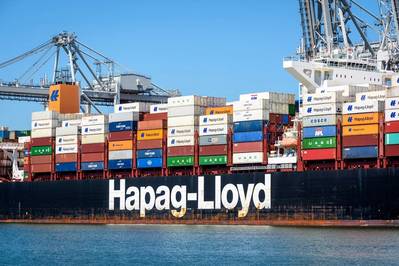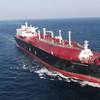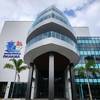Shell and Hapag-Lloyd Ink LNG Supply Deal
German container liner Hapag-Lloyd announced it has signed a multi-year agreement with Shell to bunker its ultra large dual-fuel containerships with liquefied natural gas (LNG) in the Port of Rotterdam.
LNG bunkering for these 12 new 23,500+ TEU vessels is expected to start during the second half of 2023 as the ships deploy on Europe-Far East routes, calling ports such as Rotterdam, Hamburg, Singapor, and Shanghai.
Hapag-Lloyd, which aims to achieve net zero carbon emissions by 2045, said using cleaner burning LNG enables it to immediately reduce the CO2 intensity of these vessels by up to 23% compared to conventional fuels. Additionally, the use of LNG supports the almost complete reduction of particle emissions, the company said.
Tahir Faruqui, General Manager, Head of Downstream LNG at Shell, said, “Shipping decarbonization must accelerate and, as the lowest-carbon fuel available at scale today, LNG is a key part of the transition to lower-carbon marine fuels. As we look to the future, we are committed to working with leading shipping companies like Hapag-Lloyd to establish the credible pathways to net zero."
Shell is exploring the viability of, and investing in a range of fuels, technologies and solutions that will help decarbonize shipping. This includes the use of LNG, where through an extensive network of 15 LNG bunkering locations in 10 countries globally, Shell has already achieved over 1,000 safe ship-to-ship bunkering operations to its marine customers.
In addition to the LNG supply agreement, Shell and Hapag-Lloyd have entered into a strategic collaboration agreement intended to accelerate the further decarbonization of alternative marine fuels. Initial focus will be given to developing the potential of additional low carbon fuels solutions including liquefied biomethane and the hydrogen-based fuel liquefied e-methane. Liquefied biomethane (LBM) as a marine fuel has the potential to reduce greenhouse gas emissions by between 65% and 100%.
“Hapag-Lloyd has finalized a contract with Shell which secures flexible LNG supply at competitive terms,” said Jan Christensen, Senior Director Global Fuel Purchasing at Hapag-Lloyd. “We are excited about our agreement with Shell to explore further decarbonization opportunities as it allows both businesses to drive impactful change in the industry. Collaborations like this are crucial in helping us deliver our sustainability strategy while also improving emissions in maritime shipping. Ultimately, this enables our customers to decrease their carbon footprint as well.”















